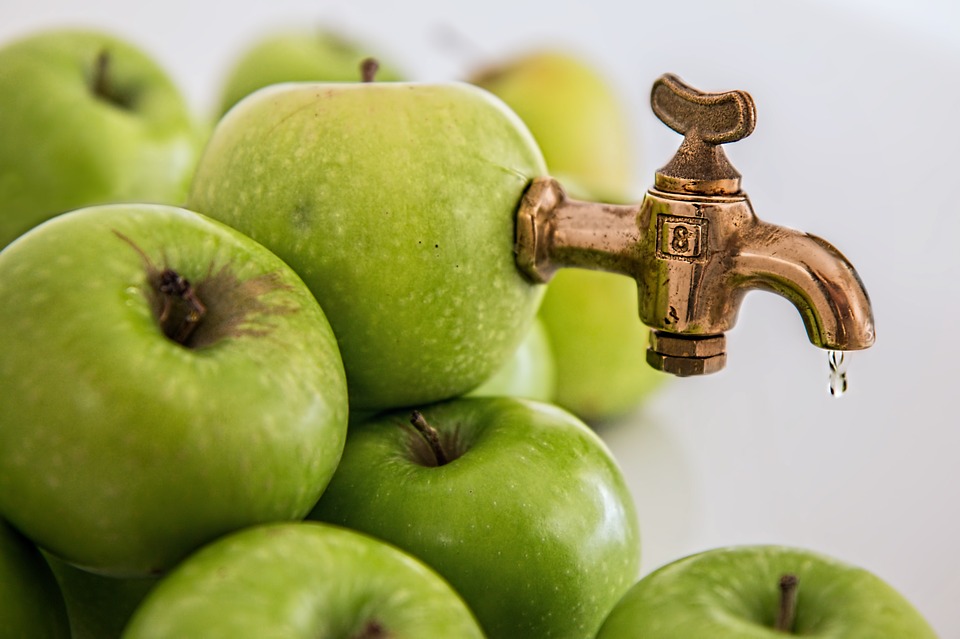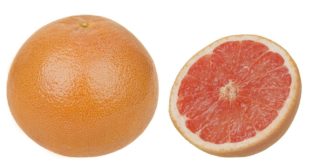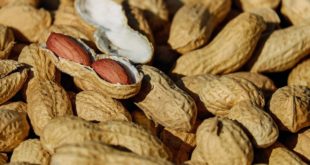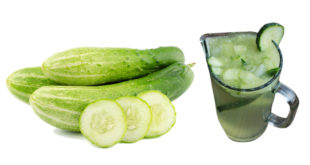Being healthy in Ramadan
It’s important to be healthy in Ramadan so that we can benefit fully from everything this month has to offer. It’s a busy and intense period of ibadah (worship) alhamdulillah, and we can and should help ourselves by being in the best possible physical condition. We can ensure this by eating foods that are rich in goodness, the consequences of which will insha Allah include making fasting easier for our bodies and minds.
One of the biggest risks we must try to avoid during Ramadan is dehydration. Now we must be clear that fasting is not a risk in itself. Allah subhanahu wata’aala would not prescribe upon us worship that is harmful for us. And for the portion of the ummah for whom fasting is too difficult, Allah subhanahu wata’aala has exempted them this obligation, providing them with alternatives. We, however, have created possible risks for ourselves by being careless about our diets and eating foods that don’t provide our bodies with the sustenance they need. One of the biggest risks we face is dehydration.
Dehydration and other health concerns
The adult body is 60% water and this water is crucial for the creation and maintenance of all sorts: digestion, saliva, circulation and the absorption and transportation of nutrients. We lose a lot of water, however, through urine, sweating, and skin evaporation which means it is crucial that we constantly hydrate ourselves to ensure our bodies are in healthy, working order.
In Ramadan, we may forget or find it difficult to drink the necessary amount of water that keeps us hydrated. Most health professionals advise eight glasses of water a day, but realistically, who can drink that amount without getting completely bored of water? It is, however, necessary that we consume an amount of water close to this, especially in preparation for fasts. To make hydrating your body more interesting, this article provides you with ten fruits that are high in water content, followed by ten nutritious nuts. You can have as much fun as you have time for experimenting how to eat or use them.
10 Hydrating Fruits
Tomatoes
Tomatoes have a 95% water content. You can add them to your salad, or again make a soup from them. Don’t forget that you can eat baby tomatoes on their own.
Peaches
With an 88% water content, peaches also have a fantastic range of health benefits. They can be used as alternatives to oranges for vitamin C, and contain vitamin A which protects vision and eyesight.
Oranges
Oranges can be used in a multitude of ways. They can made into juices or jams, and with a water content of at least 85% they are sure to keep you hydrated. Try a fruit salad or a smoothie!
Watermelon
The name gives it away! Consisting of up to 92% water, watermelons are a great source of hydration. A study has actually found that the combination of natural vitamins, minerals, sugars and salts found in watermelons actually make them more effective than water in hydrating us.
Strawberries
All berries hold a high water content, with strawberries boasting a rate of 92%. You can make a smoothie out of mixed berries, or even just add blackberries, blueberries, or raspberries to your water.
Pineapple
Pineapples are fantastic at helping to digest food. With a water content of 85%, a smoothie or fruit salad will help keep you hydrated. They also boost your immune system since they increase your intake of antioxidants.
Grapefruit
Being 90% water, grapefruit is brilliant for keeping yourself hydrated when you’re burning energy and sweating a lot. It is also considered to help with losing weight and treating common illness like the cold.
Cucumber
Remember fruit is any food with seeds! Cucumber has the highest water content of any solid food at a whopping rate of 96%. You can do something as simple as adding cucumber slices to your drink of water to gain the health benefits of this fruit. Another option is to make chilled cucumber soup, blending cucumber with ice cubes, yoghurt and mint.
Green Peppers
Green peppers have extra benefits such as reducing the risk of age-related eye disorders, and with a water content of 94%, they are definitely worth incorporating into your food and salad.
Apples
Another great option to use when making a smoothie or fresh juice, apples are 84% water. You might even want to add apple slices to your salad – you’d be surprised how tasty it is!
10 Nutritious Nuts
Another consideration for your diet during Ramadan is that you consume the vitamins and minerals your body needs to stay healthy and strong. How can you do this? Nuts! Nuts are packed with healthy vitamins, proteins, fats and minerals that have many extra health benefits to help you fly through your fasts insha Allah.
Almonds
Said to be the healthiest of all nuts, almonds are filled with protein, magnesium, calcium and vitamin E. They are said to improve general health and could even help with the prevention cancer.
Walnuts
You only need seven of these a day to reap the health benefits. Since walnuts are high in omega 3 fatty acids they have possible cognitive benefits, promoting brain health.
Cashews
An excellent source of copper, phosphorous and magnesium, these nuts are great for promoting healthy bones.
Brazil nuts
These are a fantastic source of copper and iron, and help with bone weakness and anaemia.
Chestnuts
Being high in carbohydrates means that chestnuts allow for constant, slow-releasing energy.
Macadamias
Macadamias are extremely beneficial since they are high in protein and fibre, as well as calcium, potassium and magnesium.
Pistachios
High in vitamin B6, these nuts are helpful for keeping your hormones balanced, and can also assist in protecting your eyesight. They also have anti-inflammatory properties.
Hazelnuts
Hazelnuts are high in folate, which can help promote fertility. They are so rich in vitamin E that one cup of hazelnuts contains nearly 90% of the vitamin E daily recommendation.
Peanuts
Helps improve brain power, with its vitamin B3 content. Its copper content also helps to increase good cholesterol levels and lower the bad ones.
Pecans
The vitamin B3 content of pecans can help with fatigue, and being a rich source of energy means that just one handful can be really helpful in providing the necessary proteins, vitamins and minerals.
Parting Words
Now I am not the healthiest eater at the best of times, and so when Ramadan comes around I often feel the consequences of my bad diet. I’ve always been aware of the fact that I would generally be much healthier if I was more conscious about consuming the right kinds of food and vitamins. Researching the health benefits of fruits and nuts for this article has definitely made me want to try some new recipes this Ramadan. The key, I believe, is to avoid being over-ambitious. Be realistic and incorporate around five of these twenty foods for the upcoming holy month. It will eventually become habit and by next Ramadan, you’ll have lots more recipes to add to your healthy diet. Do what you can to ensure that you stay physically strong in order to reap the best of this month in blessings and reward.
Authored by Iimaan Ismail
 Daryeel Magazine
Daryeel Magazine




